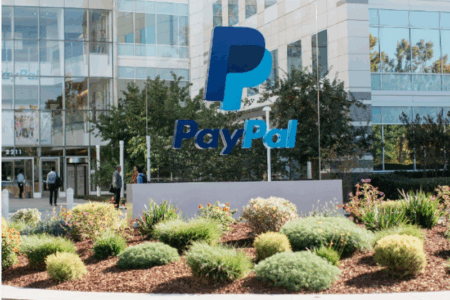True to its name, the year of the Ox was bullish for the Singapore stock market.
Our bellwether Straits Times Index (SGX: ^STI) rose by 9.8%, making it the third-best performer in Southeast Asia.
As we bid the Ox goodbye and welcome the Year of the Tiger, the sentiment remains positive despite the threat of the Omicron variant.
There is a sense that the pandemic is nearing its end and that we can, finally, settle down to a new normal.
Tigers are known for their courage and ambition.
Along this vein, 2022 may turn out to be the year when boldness is needed as investors search for trends and tailwinds that can take the index to the next level.
We see three investment themes that could set the tone for the Singapore stock market this year.
The road to recovery may be bumpy but these broad themes should help you to navigate any uncertainties ahead.
The promise of SPAC-tacular growth
The Singapore Exchange (SGX) proposed a listing framework for special purpose acquisition companies, or SPACs, back in March last year.
Six months later in September, the bourse operator finalised and introduced a SPAC framework that allowed private companies to have an alternative capital fundraising route.
Things have moved quickly since.
As of this writing, two SPACs — Vertex Technology Acquisition Company (VTAC) (SGX: VTA) and Pegasus Asia (SGX: PGU), have registered their prospectuses and listed their shares on the exchange.
A third, Novo Tellus Alpha Acquisition, is due to start trading on the morning of 27 January.
SPACs are essentially shell companies.
They are incorporated as vehicles to source for a potential business to combine with, in a process known as “de-SPAC”.
This new asset class, popular in the US but only recently introduced in Asia, promises to inject a much-needed growth angle into the sleepy Singapore market.
Unlike traditional IPOs, SPACs are on the lookout for fast-growing private companies that are looking for a faster route to list.
VTAC and Pegasus Asia have both listed fast-growing sectors such as digital healthcare, financial technology, cybersecurity and artificial intelligence to source for potential target businesses.
Asia has its fair shares of unicorns (i.e. private businesses valued in excess of US$1 billion) that are looking for a convenient route to raise money, and SPACs could be just the vehicle that these businesses need.
It also helps that VTAC and Pegasus Asia are both anchored by strong sponsors.
VTAC’s sponsor, Vertex Venture, is backed by Temasek Holdings and is a Singapore-based venture capital platform with more than 200 companies in its portfolio.
Tikehau Capital is a European alternative asset manager with around S$47.4 billion in assets under management and specialises in private equity and debt.
2022 promises to be an interesting year as investors park their money in these SPACs with the promise of a potential merger with a fast-growing candidate.
As the year rolls by, there could be new contenders joining in the fray, further livening up the investment scene for SGX.
A REIT resurgence
Singapore’s REIT sector delivered a total return of 5.2% for 2021.
However, this performance was lacklustre compared to the 13.6% total return that the benchmark Straits Times Index (SGX: ^STI) chalked up.
Sentiment soured for REITs going into 2022 as the spectre of rising interest rates dampened demand for the yield-focused asset class.
However, it may surprise you to know that amid this bearishness, strong and well-managed REITs can continue to post growth in assets under management and distribution per unit.
2022 could be the year where REITs surprise on the upside, as many of them have been so overwhelmed by negativity that distribution yields have become attractive once again.
Let’s look at some of the more promising candidates.
The two Mapletree REITs that focus on industrial properties, namely Mapletree Logistics Trust (SGX: M44U) and Mapletree Industrial Trust (SGX: ME8U), sport annualised distribution yields of 4.9% and 5.1%, respectively.
With the easing of movement restrictions, retail REITs such as Frasers Centrepoint Trust (SGX: J69U) and CapitaLand Integrated Commercial Trust (SGX: C38U) are poised to benefit.
The former offers a historical distribution yield of 5.3% while the latter’s units provide an annualised 5.2% yield.
These four REITs are also helmed by reputable sponsors that can assure investors of a peaceful night’s sleep.
Let’s not forget the two newly-listed REITs Daiwa House Logistics Trust (SGX: DHLU) and Digital Core REIT (SGX: DCRU), both of whom have yet to flex their financial muscles when it comes to acquisitions.
Both are helmed by sponsors that possess a healthy pipeline of properties of which the REITs have a right-of-first-refusal over.
Even if bank deposit rates rise in tandem with rising global interest rates, they are unlikely to exceed 1% in the near term even in the most optimistic scenario.
Investors can continue to enjoy a healthy stream of inflation-beating passive income while waiting for any of these REITs to undertake yield-accretive acquisitions.
Strategic reviews to unlock value
A third theme to watch for would be strategic reviews, a now-popular term reserved for companies that are pivoting and adapting their business.
Such moves may appear to have been partly forced by circumstances, but it can also be argued that without the pandemic acting as a catalyst for change, management may suffer from inertia and just go along with the status quo.
An impressive crop of blue-chip companies has announced strategic reviews to unlock value for shareholders.
Keppel Corporation Limited (SGX: BN4) is restructuring its offshore and marine business into three separate divisions while Sembcorp Industries Ltd (SGX: U96) is pivoting towards renewable energy by increasing the profit contribution from this segment from the current 40% to 70% by 2025.
Meanwhile, Singapore’s bellwether telco Singtel (SGX: Z74) is undertaking a corporate exercise to shed some of its assets while repositioning itself for growth.
The group has already sold off its 70% stake in its Australian tower assets for A$1.9 billion last year and plans to set up a regional data centre platform to pursue further growth.
With so many strategic reviews in progress, it begs the question of which companies may be next in line.
A few mature but under-the-radar businesses come to mind.
Boustead Singapore Limited (SGX: F9D) has four disparate divisions that handle everything from oil and gas and wastewater treatment to geospatial technologies, while Straits Trading Co Ltd (SGX: S20) has both a tin smelting division and a property arm.
These stalwarts could undertake a strategic review should they decide to transform themselves into a leaner corporate structure.
Elsewhere, Haw Par Corporation Limited (SGX: H02) has its core healthcare division that sells the globally-renowned Tiger Balm line of products, along with its leisure and property divisions.
Given the economic recovery in 2022, the time may be ripe for management to seek options to unlock value from its smaller segments.
In the meantime, shareholders can continue to sit tight and enjoy the flow of generous dividends from these resilient conglomerates.
Note: An earlier version of this article appeared in The Business Times.
Dividend-seeking investors alert! 2022 is promising to be a year where dividends are set to increase as businesses shake off the worst of the downturn and companies that previously held back are now free to resume their payments. Want to know which are the stocks poised to do well next year? Download our special FREE report, Top 9 Dividend Stocks for 2022 – and 3 Tactical Shifts to Maximise Your Profits! Get an early start to 2022 by CLICKING HERE now!
Follow us on Facebook and Telegram for the latest investing news and analyses!
Disclaimer: Royston Yang owns shares of Mapletree Industrial Trust, Digital Core REIT and Boustead Singapore Limited.





